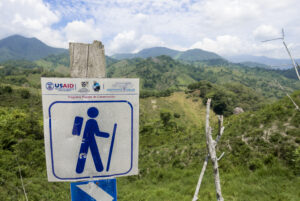On May 13, 2011, armed men on motorcycles fired five bullets into labor rights lawyer Hernán Darío in the heart of downtown Cali, Colombia. Mr. Darío is the lead attorney in a high-profile case defending the leaders of a group of sugarcane workers who led a labor strike in 2008 from criminal charges. While no one has taken responsibility for this shooting, it is widely believed to be connected with the sugar strike and Mr. Dario’s defense of the sugar workers.
The shooting comes only weeks after the Colombian government agreed to implement a “U.S.-Colombia Labor Action Plan,” a plan to make improvements in labor rights conditions in Colombia, in connection with U.S. Congressional consideration of a Free Trade Agreement (FTA) between the U.S. and Colombia. The shooting underscores the continuing and serious labor rights problems in Colombia. It also calls into question whether there has been real progress on the labor rights situation in Colombia.
The sugarcane industry in Colombia has been the site of ongoing and serious labor conflicts. Sugarcane workers, like workers in many other labor-intensive sectors of the Colombian economy, are generally hired by subcontractors, called Associative Labor Cooperative (CTAs). Workers and unions have criticized the CTAs because they undermine worker protections and labor rights by displacing responsibility away from companies. In 2008, 18,000 sugarcane workers protested deplorable working conditions in Valle del Cauca and Cauca. The protesters demanded direct contracts with refineries and other basic labor rights such as the right to unionize, job stability, and social security. The 2008 protest was met with resistance from the government and regional elites. Efforts to delegitimize the strike resulted in legal charges against the aforementioned strike leaders and key supporters in September 2008. Mr. Dario, who remains in critical condition, has paid a very heavy price for defending these workers against false charges and their efforts to seek justice and proper labor conditions.
In April 2011, Colombia committed to take long overdue steps in labor rights as part of an effort to move forward the U.S.-Colombia FTA, which the U.S. Congress has to approve. The Colombian government signed off on a “US-Colombia Labor Action Plan.” The Plan includes plans to expand protection mechanisms to non-union labor activists and the designation of 100 labor inspectors to address abuses in CTAs. The shooting of Mr. Dario reminds us that the Plan remains insufficient in dealing with the labor rights problems in Colombia. It does not address the underlying human rights issues that generate labor violence and impunity, nor does it go far enough on labor rights. It does not ban associative cooperatives and it does not require a reduction in labor violence prior to consideration of the Free Trade Agreement.
During President Santos' time in office, 23 Colombian trade unionists have been assassinated and 133 have been the target of death threats. Countless other Afro-Colombian, indigenous and displaced land rights activists were killed, received death threats and became displaced for defending their lands. Unless U.S. and Colombian policymakers take bold steps to implement a real labor action plan that deals with the root causes of violence and impunity including the dismantlement of illegal armed groups and act to truly protect these activists from violence, we will continue to see a surge in cases like Mr. Darío.
Violence and intimidation are utilized in order to silence labor rights defenders in Colombia. When high-profile figures like Mr. Dario are attacked, it becomes evident that there are no guarantees for workers that peacefully and legitimately defend basic labor rights. Their vulnerability is symptomatic of a labor environment where the rights of workers do not matter. Under these circumstances, moving forward with a U.S.-Colombia FTA would be a mistake.
Photo by Cicero R. C. Omena
———
Representatives Miller and McGovern denounce the assasination attempt and other labor rights violations in Colombia in a letter to U.S. Trade Representative Ambassador Ronald Kirk (May 18, 2011)

